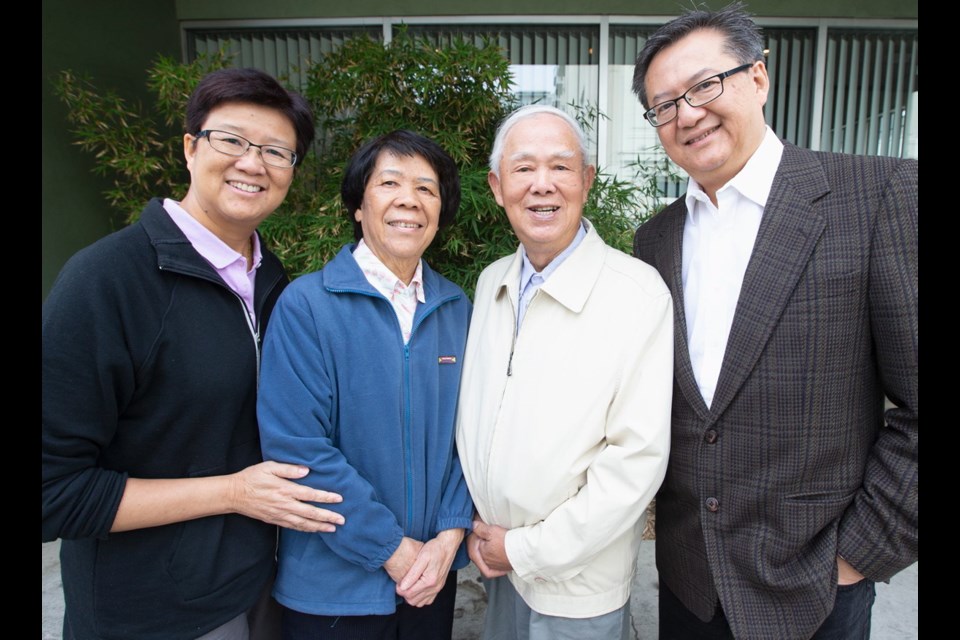Ken and Julie Chow’s childhood centred around the Embassy Café, an institution in Victoria’s Chinatown during the 34 years it was open.
After school, Ken and Julie would spent two hours learning Chinese at the Chinese Public School and then would walk over to the café to do their homework. As they sat behind the diner-style countertops, they would always have one eye on the door, ready to serve customers who came in for dinner or a cup of coffee.
“It was a social hub. People would have coffee there and gossip,” said Ken Chow, 59, now an architect who lives in Vancouver.
Whenever Julie made plans to meet friends, they would always gather first at the Embassy Café, free to help themselves to butter tarts, honey buns and doughnuts made fresh every morning by her father, Henry Chow.
Henry Chow opened the business in 1956, three years after he emigrated from China. Two years later, he had an arranged marriage to a woman from Hong Kong. Maureen, 80, and Henry, 83, are still married 60 years later.
These are some of the personal histories that weave together to tell the story of Victoria’s Chinese community. Several generations of the community gathered Saturday in the Golden City Restaurant for the first such reunion.
It was the brainchild of Victoria Coun. Charlayne Thornton-Joe, a thrid-generation member of the community who was tired of seeing others only at funerals.
She wanted to foster a spirit of celebration and honour the Chinese immigrants who paved the way for future generations — “to be able to acknowledge that I have opportunities because of many of the people in the room, whether it’s the veterans or the ones who struggled to become the first doctors, the first lawyers.” Those respectable professions were open only to those who could vote, she said, a right Chinese Canadians weren’t granted until 1947.
Everyone at the banquet was asked to share their old photos to a community Facebook page called Chinese Community of Victoria B.C.
As the photos flashed across a screen, 92-year-old Gordie Quan spotted a much younger version of himself: A 14-year-old collecting money in a teacup to support Chinese soldiers during the Sino-Japanese War.
Four years later, he enlisted in the Canadian Army during the Second World War. He trained in London as a demolitions expert and was deployed to India and Burma where Allied troops were fighting the Japanese.
After the war, Quan returned to Victoria, where he met his wife and raised four children.
People move away and start families of their own, which is why Quan said he’s happy the reunion brings together old friends and new.
Victoria’s Chinatown, the first port of entry for people sailing across the Pacific during the Gold Rush, is the oldest in Canada. The federal government designated it a national historic site in 1995.
Family-run Chinese businesses like that of the Chows have become less common in Victoria’s Chinatown, as gentrification and high rents make running a small enterprise increasingly difficult. Trendy boutiques and a condominium building now exist alongside the Chinatown Fan Tan Trading Company and the Ling Soy butcher shop.
Ken Chow said as families moved to the suburbs and shopped at big-box stores, there were fewer reasons to shop in Chinatown.
“It’s changing in all Chinatowns in North America,” he said.
“It used to be a haven for new immigrants for protection, for security and familiarity. And then over time it’s changed, because the needs of the population have changed.”
The newer shops are needed to keep Chinatown a vibrant destination, he said.
“You can’t go back to the way it was. You can’t reverse history. Even though we remember back with fondness, it has to change.”



